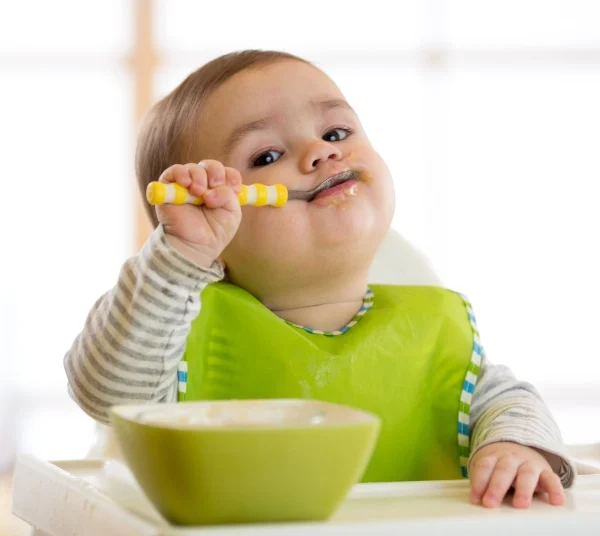If there is a baby or toddler in your home, you should read this article with due importance. Medicines can cure and heal but when used in the wrong way they can create health hazards, result into serious consequences and even death, particularly when it is about a baby or toddler.
The body of a baby or toddler is still in the making and hence the ability of that tiny body in dealing with the side effects of the medicines is much lesser compared to any adult healthy human being. Hence, strict demarcation needs to be maintained between the medicines of adults and the ones for children.
As a thumb rule, never give your baby or toddler any medicine, no matter how harmless it seems, without consulting a child specialist. The wrong medicine in the wrong dosage can do more harm than good to a baby’s health. So, even if it is just a simple or common medicine do not ever give it to a toddler unless it has been particularly prescribed by the doctor for the child.
Here is a list of common medicines that you should not give to a baby or child and also added explanation of how these seemingly harmless medicines can turn hazardous for the health of a baby or toddler.
Medications for cough and cold
Babies and toddlers within 3 years of age often suffer from cough and cold. Their body immunity is much lower and hence catching an infection during the change of weather is only very common. However, there is a strict debate about if any cough and cold medication is at all suitable for babies within 3 years of age. Even the seemingly harmless cough and cold medications available over the counter when given to a baby or toddler can turn hazardous.
These medications can create serious drowsiness or sleeplessness in babies. They can also cause stomach problems, rash on the skin and even more serious side effects like convulsion, increased heart rate and even death. When an OTC cough and cold medication is given to a child below 3 years of age, there is maximum chance of overdosing which certainly adds to the severity of the side effects.
So, if your child is suffering from a serious cold, it is best to opt for simple home remedies, like keeping him dry and regulating the humidifier more precisely. Consulting a child specialist can also be most helpful but never give him or her any OTC medication for cough and cold.
Aspirin
Aspirin might be a day saver for you when you are having a serious headache but it is not certainly a suitable drug for a baby or toddler. In case of fever or another discomfort of a baby or toddler, never give him or her aspirin or any other drug that contains aspirin without the suggestion of a doctor. Aspirin can increase the chance of getting Reye’s syndrome in your child. Moreover, it might be damaging for other organs too.
There is also many children’s medication that contains aspirin under chemical names like “salicylate” or “acetylsalicylic acid”. So, unless you are confirmed that the medicine is completely free from aspirin or any of its derivatives, do not give it to your child. Consult with a doctor and then only pick the suitable medicine to ease the symptoms in your baby or toddler.
Medications for nausea and vomiting
If your baby is having bouts of vomiting, just do not give him or her any OTC medication for nausea and vomiting. In normal cases, children are pretty good at handling these problems and he or she is most expected to improve on her own within half of a day. However, if the problem persists and if your baby or toddler seems to be uncomfortable, consult a child specialist before giving him any medications. Medications for nausea and vomiting might create other complications and side effects in the body of a baby or toddler, unless the formulation is particularly formulated for this age group. So, consult your doctor first.
Medicine not prescribed to him or her
If you have more than one baby or toddler at home and if you think that you can use the same medications for both of them in case of similar symptoms, you are banking on a wrong idea. Same or similar problems can be created due to different reasons and you should not give a baby or toddler any medications that have not been particularly prescribed for him or her. Giving your toddler a medication that might have been prescribed to him or her for another condition can also be equally dangerous.
Medicines that have expired
Expired medications lose their effectiveness with time and might even turn poisonous. While taking expired medications can be harmful for even the adults, giving your baby or toddler a medicine that has crossed its expiry date can be fatal. So, even if a medicine had been prescribed to the baby by his doctor and had worked efficiently to cure him at an earlier date, do not use that medicine again if it has crossed the expiry.
Tablets and Chewable medicines
For babies and toddlers below 3 years of age, tablets and chewable medicines are never an option. They can easily choke on the tablets resulting into serious consequences. Only liquid medicines should be gives to the children of this age group and in case the physician has suggested a tablet for the child for some particular reasons, make sure that you give it to him or her only after diluting the tablet properly in water or as suggested by the physician.
Medicines for adults
We have the common wisdom that adult medications for treating similar symptoms can be given to the children at a lower dose. However, this idea can land you in serious trouble and your baby in serious health hazards. Never give your child any adult medications not even in the most diluted dose. If the problem of your child looks serious consult a doctor first and then only give him or her any medications. Keep in mind that giving the wrong medicine to a baby or toddler can cause more harm than not getting any treatment at all.





